Expert turkey farmer, René Arts, from the Netherlands advocates strongly for the use of winter gardens (covered verandas). Winter gardens are necessary in order to meet the high quality standards of the Beter Leven labelling system, which René Arts’ turkey farm complies with. The winter garden has a water system, the space is easy to disinfect and clean, and no wild birds can get inside the building. Due to the risk of disease that turkeys can contract from being outdoors (for example, Mr Arts once lost 40% of his rafter to blackhead disease), he stands by his opinion that the winter garden system is not only best for the turkeys’ welfare but also their health, particularly if trying to reduce the amount of antibiotics used on turkeys.
MEP Sarah Wiener (Greens/EFA, AT), a Vice-President of the Animal Welfare Intergroup, was quick to contradict Mr Arts' opinion, stating that she thinks there is even a better solution than winter gardens for turkeys. Ms Wiener compared the example to the concept that a child is of course safer if kept inside the house but has to be allowed outside in order to live a full life. Turkeys kept in winter gardens are thus not living a full life. MEP Wiener also expressed her dismay with the Commission's intention of not specifically legislating on turkey welfare during this term. . She put it to Ms Kirsten Vornhagen, Policy Officer at DG SANTE by saying that “If we don’t start now, every day is a lost day for turkeys”.
Ms Vornhagen did not shy away from this comment, explaining that turkeys are indeed high up on the Commission’s list of priorities, nonetheless when it comes to the legislative review, it is a case of prioritisation in relation to different standards and species. It is not possible to simply add a few articles to an existing Directive in this manner. Drafting legislation involves specific steps that are legally required, including roadmaps, public consultations, an impact assessment and scientific opinions. Ms Vornahgen spoke about the activities of the recently created EU Reference Centre on the welfare of poultry and other small farmed animals which also works for the welfare of turkeys during transport and at slaughter. She then addressed the intentions of the Commission for the ongoing fitness check, which will include a revision of the On-farm Directive, the Transport Regulation and the Slaughter Regulation. All three of these acts relate to turkeys, however there will be no specific legislation on turkeys within the next few years. Ms Vornhagen stressed that the Commission’s policy on Animal Welfare is not restrictive to legislative proposals and also supports developing best practices, recommendations and conducting audits.
This is all very well, but what intel do we have in order to develop best practices and recommendations? Turkey Welfare expert Prof Dr Krautwald-Junghanns provided an informative overview of a research paper she has produced, highlighting various issues that arise from overcrowded stocking densities from cannibalism, to broken limbs, to unnatural and stressful behaviours. There is an evident need for further research in this area, nonetheless the information we do have, should be sending off alarm bells to Commissioners and Members of the European Parliament that a change in the way we farm turkeys is urgent.
As a final remark, MEP Ajna Hazekamp, President of the Intergroup on Animal Welfare, highlighted that we must continue dialogue concerning turkey welfare in order to maintain it high on the European animal welfare agenda.
The next Intergroup session will take place on the 21st of October and will be on the topic of fish welfare.
The presentations of each speaker can be accessed below.
René Arts, Turkey Farmer, Beter Leven, Netherlands
